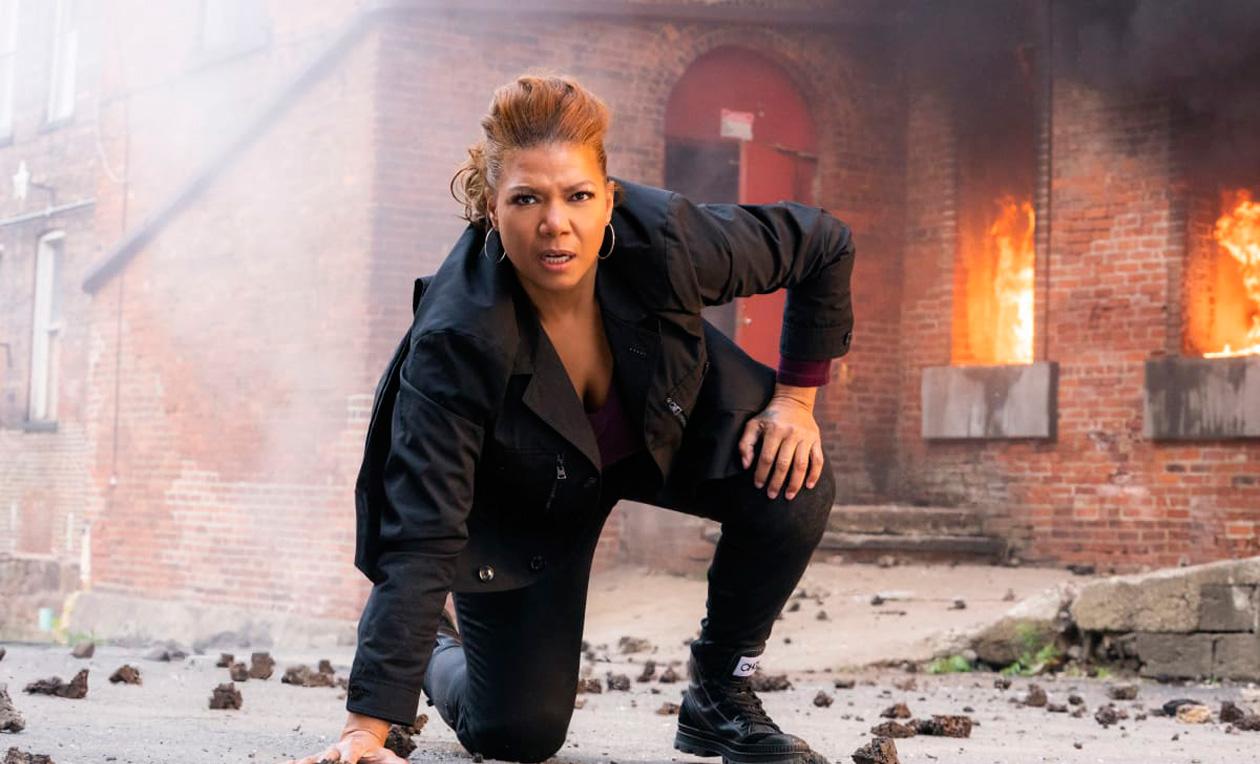
Image source: CBS
In my mind, Queen Latifah is a hip-hop queen with comedic charm, but in CBS's latest action drama "The Equalizer", she shows a different charm, but the show does not deserve her charm.
"The Wrongdoer" is a remake of the TV series of the same name in the 1980s, telling the story of Robyn McCall, a retired female CIA agent, who helps people clear their suspicions and restore their reputations. A special agent with extraordinary skills returned to the city to help ordinary people, and it seems that he did not receive remuneration... In any case, there is a sense of virginity + oversized, and it seems to be incompatible with today's materialistic society, and it can even be said that it has been divorced from reality.
In real life, people have to be motivated to do things, so what is McCall's motivation? Unfortunately, in the story of the first episode of "Justice", her motives are not obvious. In fact, before she was involved in the wrongful conviction of schoolgirl Jewel Machado, she was a tortured unemployed housewife with a rebellious daughter, but her life seemed to be very rich. Machado, on the other hand, is a poor student about to go to college. Two people who can't beat the eight rods are connected because of McCall's one-time meeting with righteous courage. Obviously, her intersection with Machado was a complete coincidence. However, after this coincidence, McCall's story with Machado develops in an inexplicable direction - Machado claims to have been wronged, McCall believes it without hesitation, and uses his relationship to protect Machado and do justice for Machado. Although it turns out later that Machado didn't lie, why did McCall believe her before that? Is it simply because the Virgin's heart is overflowing, or there is nothing to do to idle? For this point, the creators of this show did not explain clearly, so it is difficult to convince the audience.
The main tone of the show is a "chivalrous" word, or another way of expressing a Robin Hood story. The emergence of the so-called chivalrous guest has a historical background, is a substitute product under the serious damage to the judicial system, and its own meaning is to exalt evil and promote good. Is it just that the historical background of "The Wrongdoer" is really an era of police incompetence and government slackness? Obviously, there is no way to judge from the story of the first episode, so McCall's chivalrous image is difficult to stand. What's worse is that in the whole episode of the story, the author did not feel a little "chivalrous spirit", but was watching a tasteless farce.
Machado is clearly the victim, but becomes a suspect in a surveillance video. Judging from the evidence at the time, the police suspected that Machado was not unreasonable. However, if McCall had not intervened, with the strength of the police, the truth should have been gradually revealed when looking for a motive for the crime. Unfortunately, McCall did not give the police a chance, so he pretended to be a government official to sabotage the interrogation, instructed hackers to invade the police server, and colluded with others to intercept the prison car halfway, obstructing justice. In the end, she was able to retire after violating the law and discipline, and incidentally helped the government department to catch two wanted repeat offenders, and even finally had to rely on chivalry to re-employ. If it were not for the malice of the state power organs or the disdain for the judicial system, it would be difficult for the screenwriters of this play to write such an absurd and all-slot script.
Admittedly, people love the story of chivalrous, and in American film and television works are also full of chivalrous figures - Captain America, Superman, Batman, Spider-Man, and so on. But after all, these are only fictional works under the conditions of alternate history — and these heroes have been repeatedly put on the police station blacklist, and some heroes have been recruited — and the background of McCall's era is different. Although the authority of the police and the judiciary is challenged in today's American society, they are still at work and are still the strength that ordinary people need to rely on in times of crisis. Since there is no systematic collapse of this judicial system, the emergence of mcCalls is counterintuitive and inconsistent with the current context of the times, and the stories with them as protagonists have lost their foundation for development and growth. If you don't make adjustments in the later stage, the play may not be a fairytale ending.